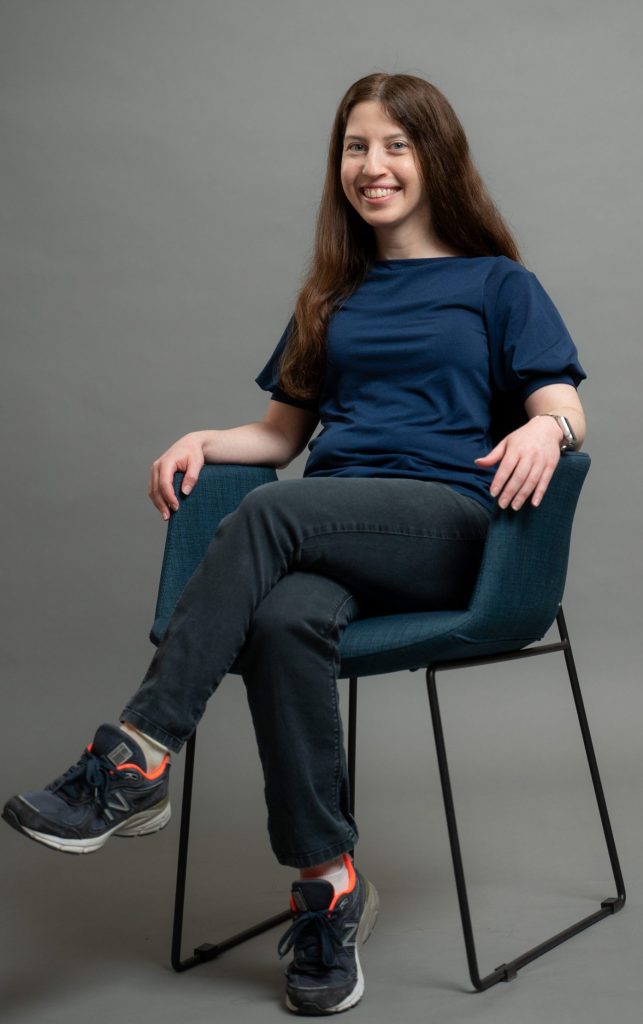Reinventing the Electrical Engineer
Dr. Dana Drachsler Cohen inspires female students in Electrical Engineering to believe in themselves.
“Electrical engineering is a fascinating profession, don’t let prejudice deter you”.
Dr. Dana Drachsler Cohen, new faculty member of the Andrew and Erena Viterby Faculty of Electrical Engineering, inspires female students in the field to believe in themselves.
The Faculty of Electrical Engineering’s website, named after Andrew and Erna Viterbi, features almost sixty active faculty members, only five of whom are women. This is low even when compared to the proportion of women in non-technical faculties in Israeli universities, which in 2016 stood at 32 percent. This gap raises a basic question: why?
In today’s world, research in electrical engineering does not involve carrying generators or lifting large cables, which would also be challenging for many male faculty members. In other words, the gap is not due to skills or abilities. Dr. Dana Drachsler Cohen, a new faculty member, thinks the gap may be due to prejudice.
“It is important to make these subjects – electrical engineering and STEM subjects in general – accessible to students early on in school. I believe that this exposure will lead many students to become more interested in these topics.” To strengthen her claim, she cites an extensive study from 2018, which found that girls’ grades are higher on average than boys’ grades, including in math and science and regardless of age – in both primary and high schools as well as at university.
Dr. Drachsler Cohen, who began her academic career at the age of 15 as an undergraduate at the Open University, arrived at the Technion after a postdoctoral fellowship at ETH – the Swiss Federal Institute of Technology in Zurich. For most of her time there, she was the only woman in the lab.
Dr. Drachsler Cohen’s field of research deals with guaranteeing the correctness and safety of software, primarily in the context of deep learning, computer networks, and blockchain. Simply put, it uses mathematical models to guarantee that computer software will run as expected, even during long development processes. “If Zoom crashes, it is annoying, but there are systems where bugs can lead to fatal malfunctions – for example, medical devices, autonomous cars, or cooling systems for Corona vaccines. Such systems must be very reliable, otherwise, the relevant industries will not adopt them.”
She began her academic career at the Technion at the Taub Faculty of Computer Science, where she completed her undergraduate degree in two years as part of the Rothschild Technion Program for Excellence. She continued on in the same faculty to a direct doctoral program under the supervision of Prof. Eran Yahav. During her doctorate, she won the Zeff and Jacobs Fellowships as well as the Muriel and David Jacknow Prize for Excellence in Teaching.
Drachsler Cohen then traveled to Switzerland for a two-year postdoctoral research period, where she won an ETH postdoctoral fellowship. In August 2019, she joined the Faculty of Electrical Engineering. Last year, she was awarded the prestigious Alon Scholarship for the Recognition of Outstanding Young Scientists by the Council for Higher Education (MLAG).
Over the years, Dr. Drachsler Cohen has seen many female electrical engineering students and STEM professionals who doubted their abilities, so she set up a special faculty program to encourage them. As part of the program, the students meet successful women in the field, raise issues that they face, receive tips, and create a professional toolbox for themselves.
“I want to tell female students that they need to believe in themselves and engage in what interests them – and that they will succeed. Sometimes you need someone external to dispel the self-doubt, so it is important to make sure there is someone like this around you. If you do not have anyone, feel free to contact me. If you are a student in the faculty and see this post – you are welcome to join our program.”



